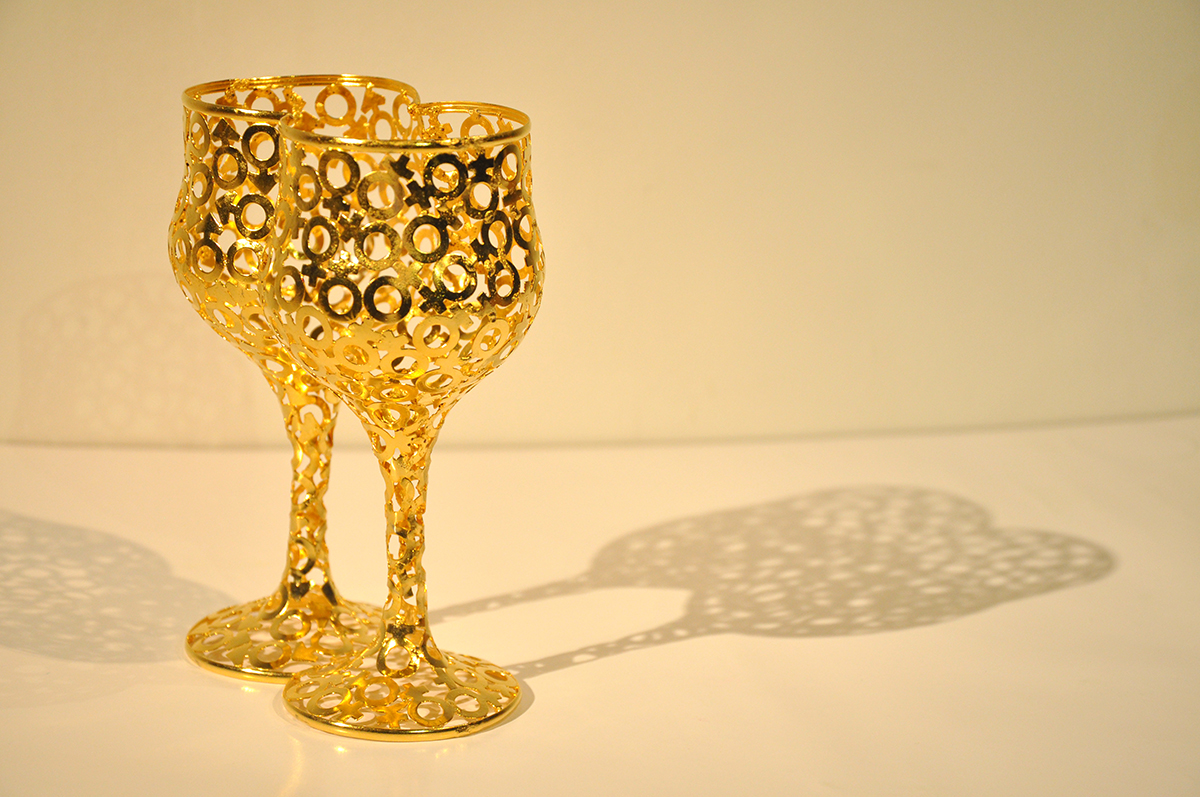
Couple of Sip, 2014
Bangladeshi contemporary artist Shimul Saha experiments with a broad range of unique mediums. Here, Charlie Sokol explores how Saha shows concepts of health, political and societal issues in his works
Shimul Saha’s works and techniques are constantly inspired by changes in the world around him. From using light and shadows to engravings and using ancient sewing methods, the mediums he uses correlate to the messages he portrays through his works.
Follow LUX on Instagram: luxthemagazine
In Couple Of Sip, the artist uses light and shadow to project a mesh of male and female symbols to expose and question the inequality between men and women.
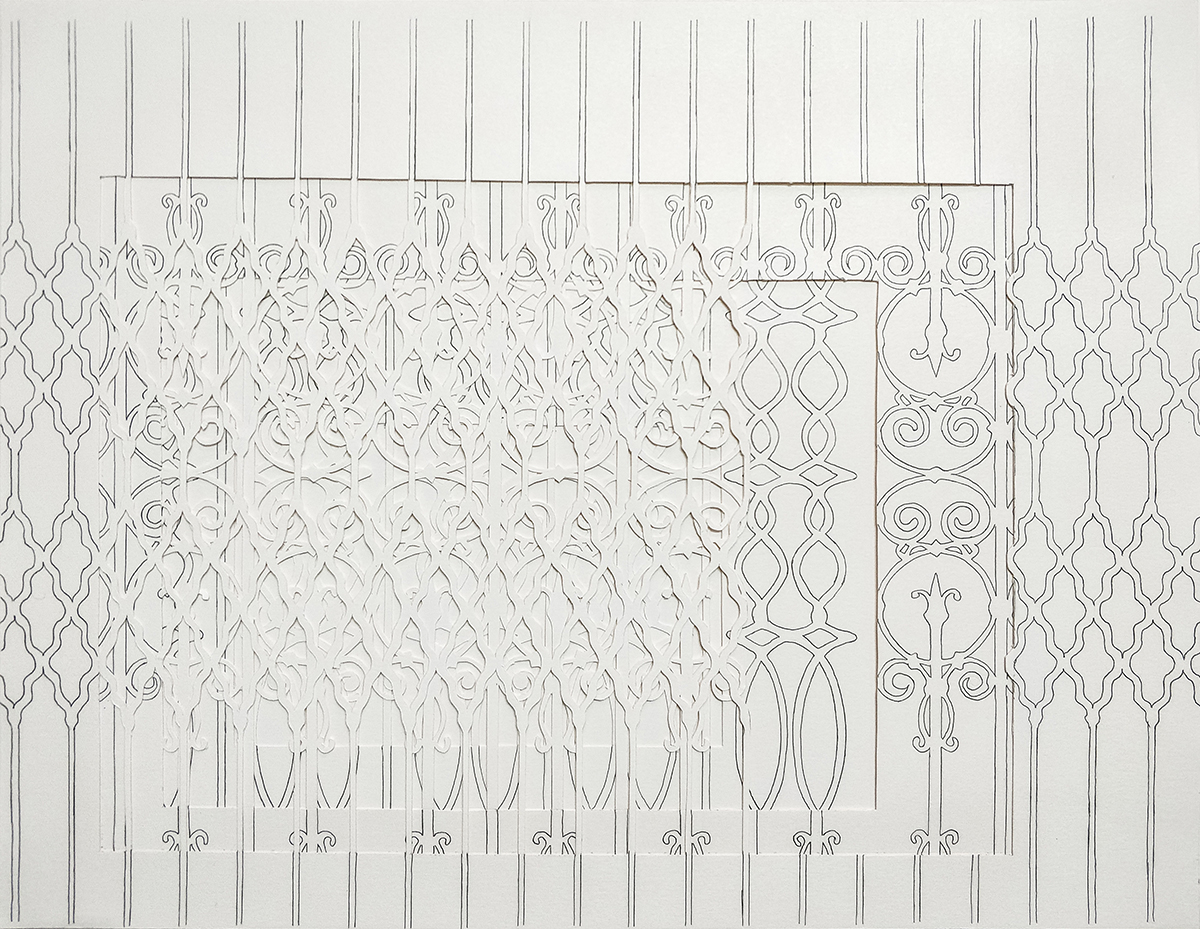
Which Face Wants To take I & II, 2022
His conceptual forms also highlight cultural changes. A recent work which merges architectural structures, Which Face Wants To Take – I & II, represents the interlinking of culture from the Mughal Empire, Britain and East Pakistan, all of which are closely tied to Bangladesh’s history. Saha was able to do this through the use of a centuries-old stitching technique, originating in the eastern Indian states of West Bengal and Orissa, to create a kantha (patchwork cloths made from rags).
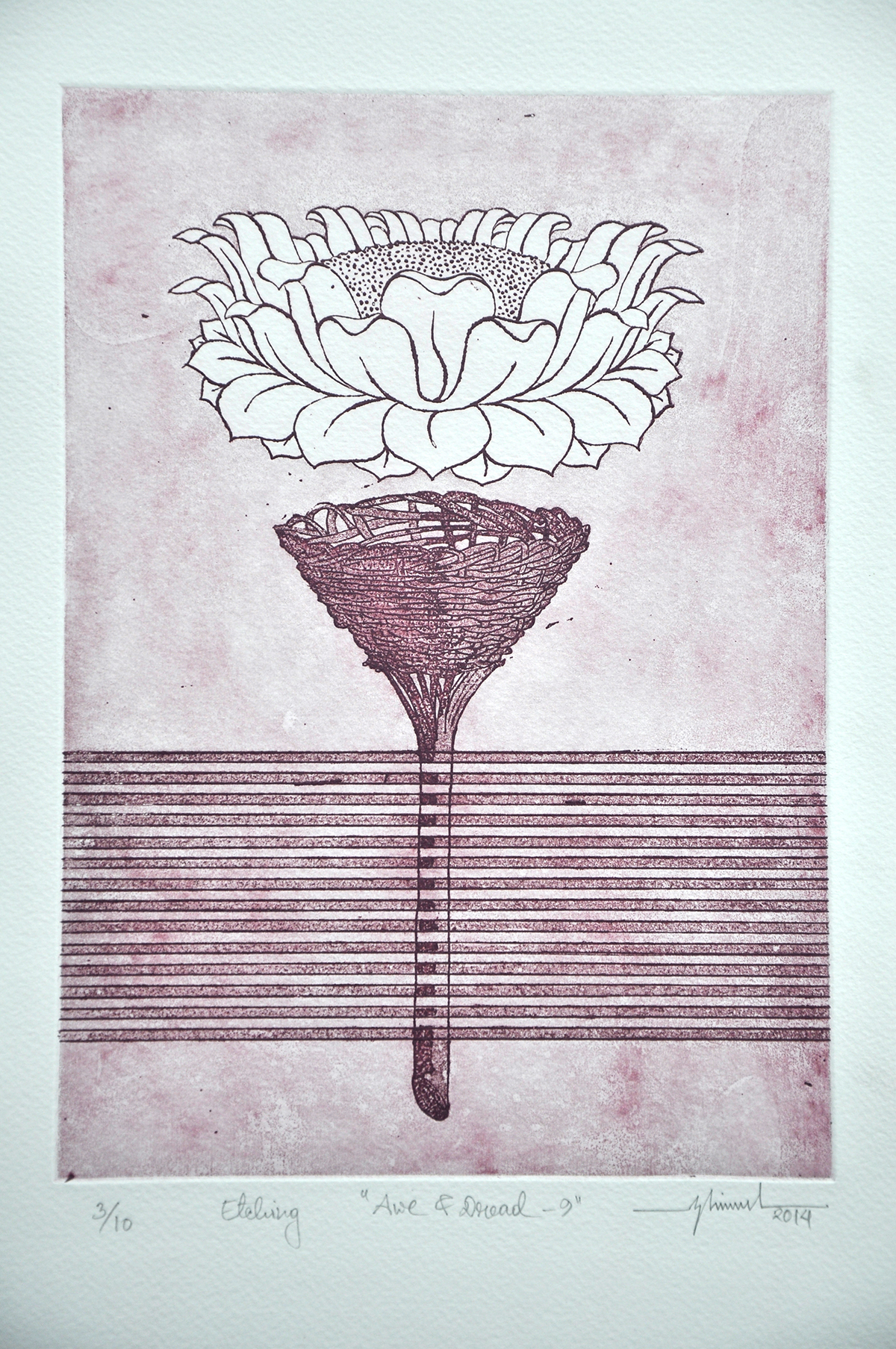
Awe and Dread, 2014
Awe and Dread is a series of etchings in response to the artist’s time spent in Remakree, in the Bandarban hill district in Bangladesh, in 2014. Saha sought to understand a group of indigenous people called the Marma. The intricate prints are intended to tell stories from their daily lives and their connection to Buddhism.
“The medium is based on the concept. To develop my creative process I do select my art material according to my work’s notion because every material has its own identity and character to express something. Sometimes the material speaks on my behalf. I love to explore new mediums, because I do believe, that if creation is unique and updated then why not try new mediums for each creation,” explains Saha.
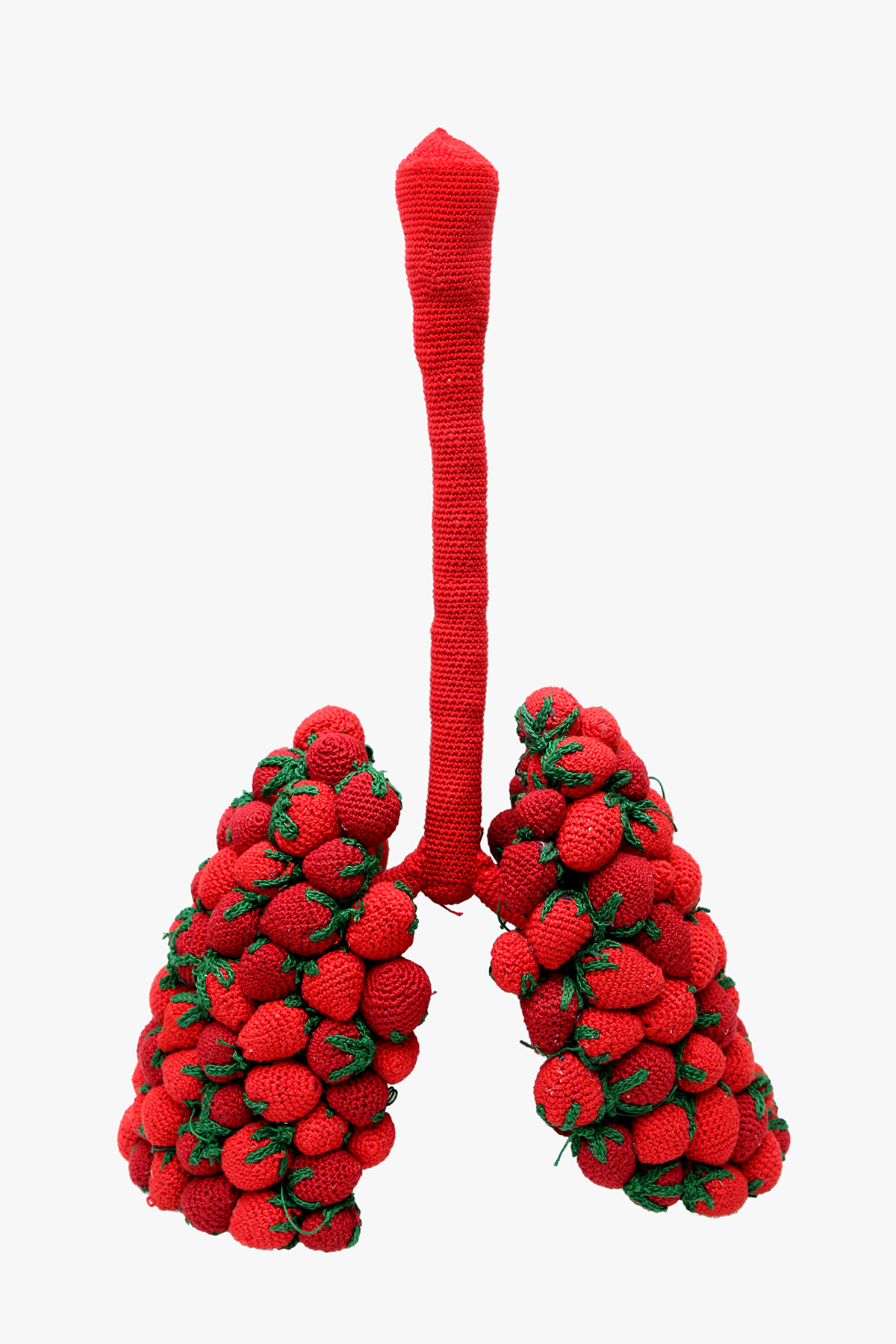
Organic to Organ – V, 2022
Organic to Organ – V serves as an exploration of the various methods employed in modern food cultivation. Saha prompts us to contemplate the methods by which we obtain our nourishment. Emphasising the importance of organicity in sustaining and safeguarding life, the work highlights the adverse effects of synthetic pesticides and toxins, which ultimately jeopardise our most vital organs.
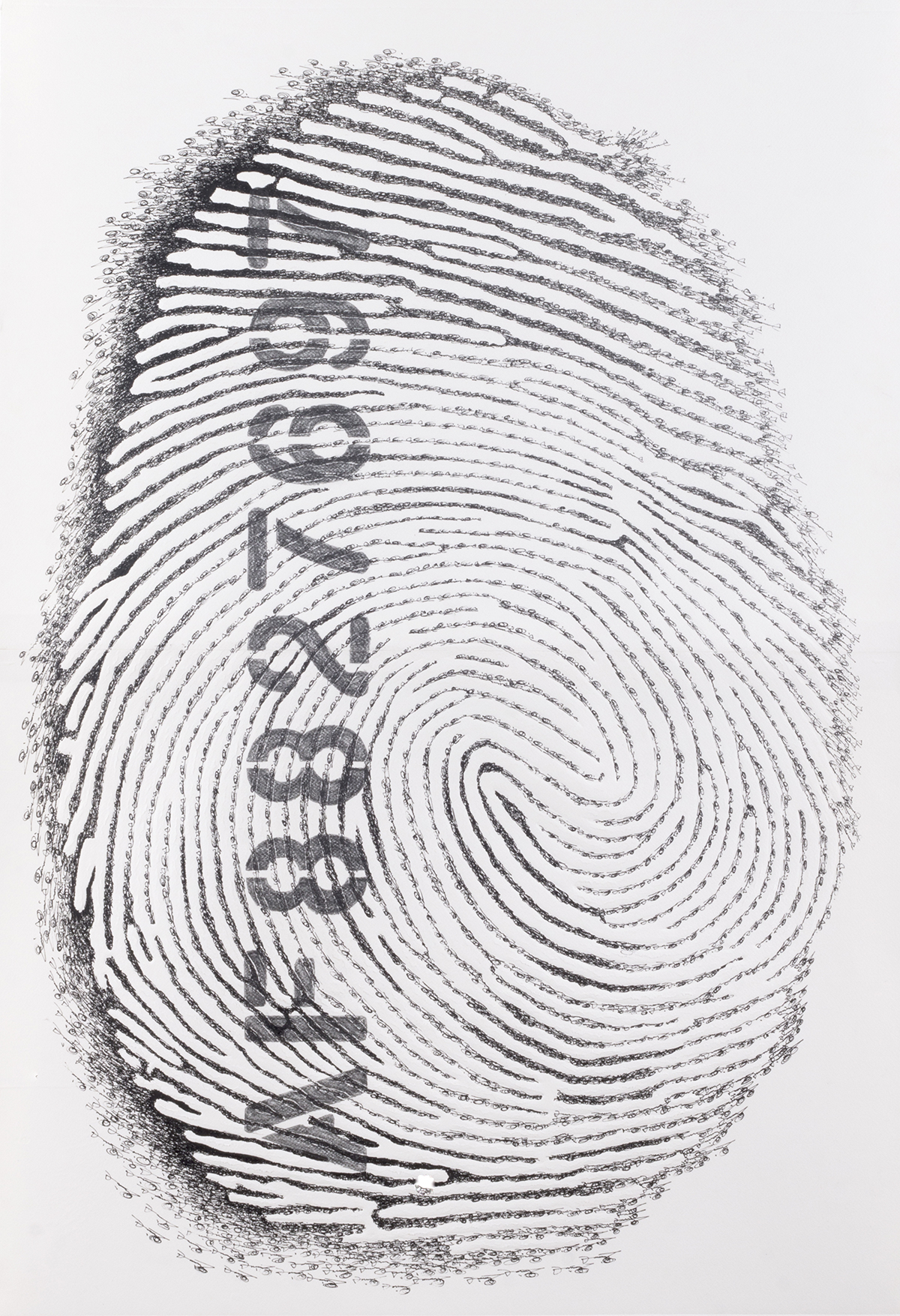
Self Portrait, 2016
Identity is a key feature in Saha’s works. He recognises the modern era of identification for individuals in the form of biometric scans and numbers. Self Portrait explores this idea, as a series of numbers is presented on top of the image of a fingerprint. Saha remarks that “wherever I am, I am a number”.
Read more: Rafiqun Nabi: Exploring Bangladeshi society through art
Saha’s work will be displayed at Kunsthaus, Zurich as part of a show by the Britto Arts Trust from September 2023
This article was published in association with the Durjoy Bangladesh Foundation









Recent Comments